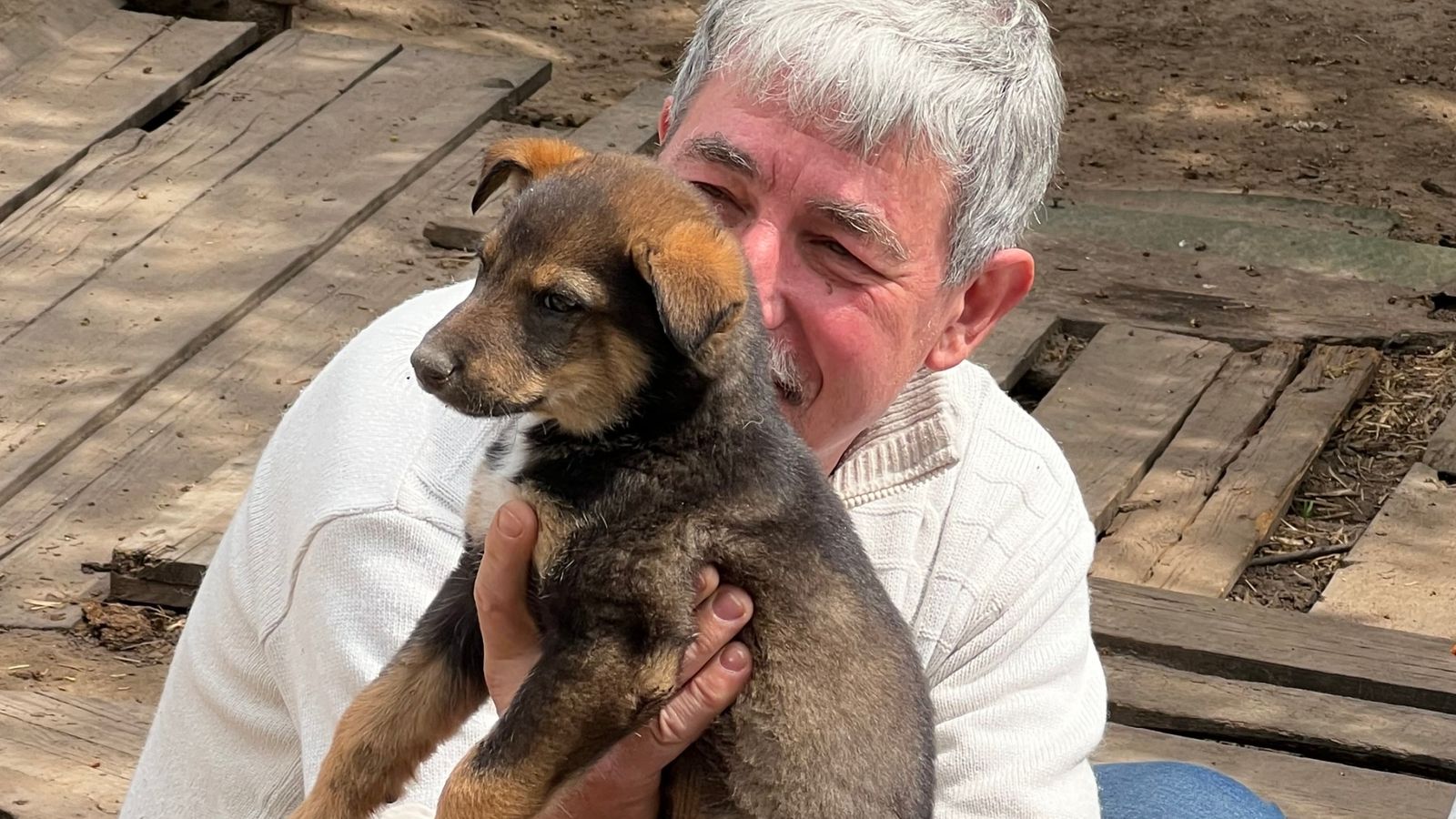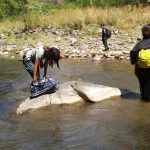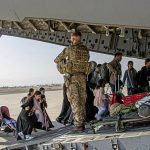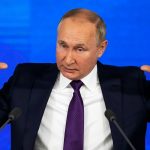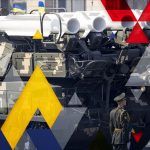Caught between an advancing Russian army and the Ukrainian military valiantly defending the most important airfield just north of Kyiv in February, there is an animal shelter in the town of Hostomel.
Although the Russians were beaten back, and Hostomel airfield was secured, hundreds of people lost their lives here in an intense and brutal and grim campaign.
As the artillery thumped overhead at all hours during the tense opening days of the war, 55-year-old Maxim Skripnik and 77-year-old Asya Serpinska stayed behind to care for more than 600 dogs and 100 cats that know this place as their home.
When fleeing families could not bring their pets with them, the town’s dogs and cats found their way to the Hostomel shelter.
It is a collection of fenced enclosures and low outbuildings, at the end of a dusty track home to both old potholes and fresh holes blown up in the road from mortars.
There are still bullets on the ground from the fierce battles here.
An adjacent grain silo, hastily refashioned into a Ukrainian communications tower, has been destroyed to the point of near-collapse.
But the sounds that greet us at the gate of the shelter are not the now-familiar clamours of war, but dogs.
A cacophony of barking from canines of all ages is a welcome racket, says Maxim, who manages the site.
“We counted how many missiles were fired from each side. There were hundreds a day,” he says.
One stray shell landed in the middle of the car park, the crater just feet from the main building, destroying Maxim’s car.
So frightened were the dogs during the height of the raging battles, they dug their own holes to hide in when the noise was too much.
Some died of the shock of what was happening around them, others were shot in the streets by Russian soldiers.
“We continue to find dead animals”, he told us.
Maxim wanted to make sure they were fed and watered and not abandoned. It meant that when the power and plumbing were cut off, he persuaded the Russian occupiers to allow pet food and a generator in to keep the place going.
He has no regrets about staying, saying it was simply his duty: “The Ukrainian people fulfil their everyday jobs, and our job was to provide a good life for these animals.”
One six-week old puppy was born during the fighting. He has no name yet “but he survived” Maxim says, proudly holding him aloft.
Maxim’s priority now is to find homes for puppies like this and reunite other dogs with owners who fled. The ammunition boxes the Russians left behind have a new home storing donated supplies for the animals.
In the midst of war these are people risking their lives to protect animals in need, and no one will persuade them otherwise.
